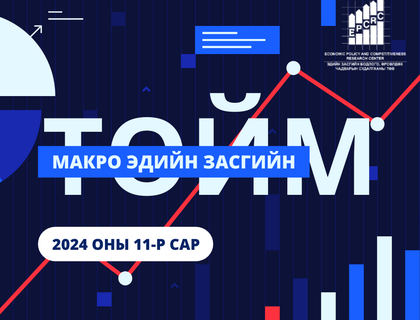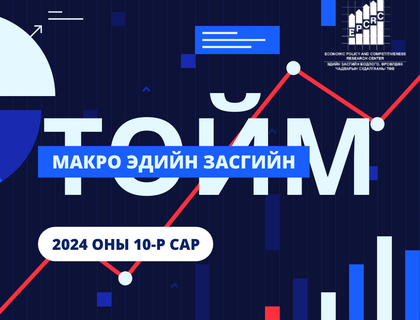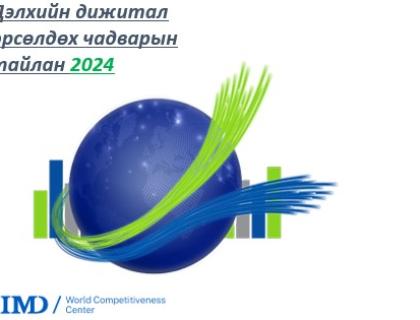Thematic forum on “China’s 70-year Development and the Building of a Community with a Shared Future for Mankind” was held as part of the 2nd Hongqiao International Economic Forum in Shanghai, China on November 5th -7th, 2019. The forum highlighted China’s development during the last 70 years and its impact and significance on the global development and building of a shared future for mankind among other topics.
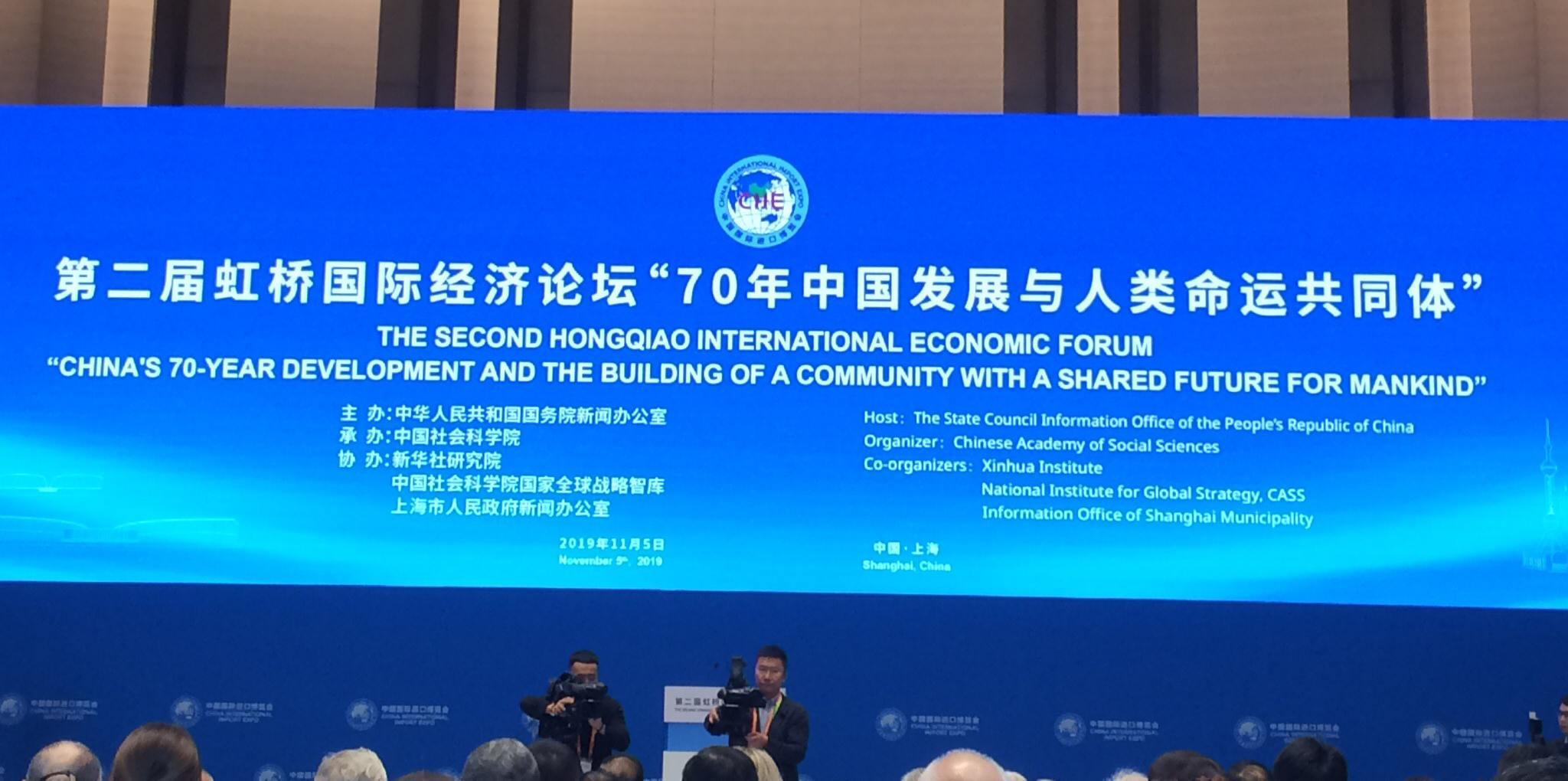
During the past 70 years, China experienced rapid economic growth and became the second biggest economy in the world with high level of industrialization and urbanization while promoting scientific and technological innovation and advancements, reducing poverty at a large scale and supporting better livelihoods.
Executives of over 270 think tanks and media from around 100 countries participated in the event. Deputy Director of the Economic Policy and Competitiveness Research Center Ms.Odonchimeg Ikhbayar and researcher N.Gan-Erdene have participated the forum at the invitation of the Chinese Academy of Social Sciences and National Institute for Global Strategy. Ms.Odonchimeg delivered a speech during the “Ecological Civilization and Sustainable Development" session.
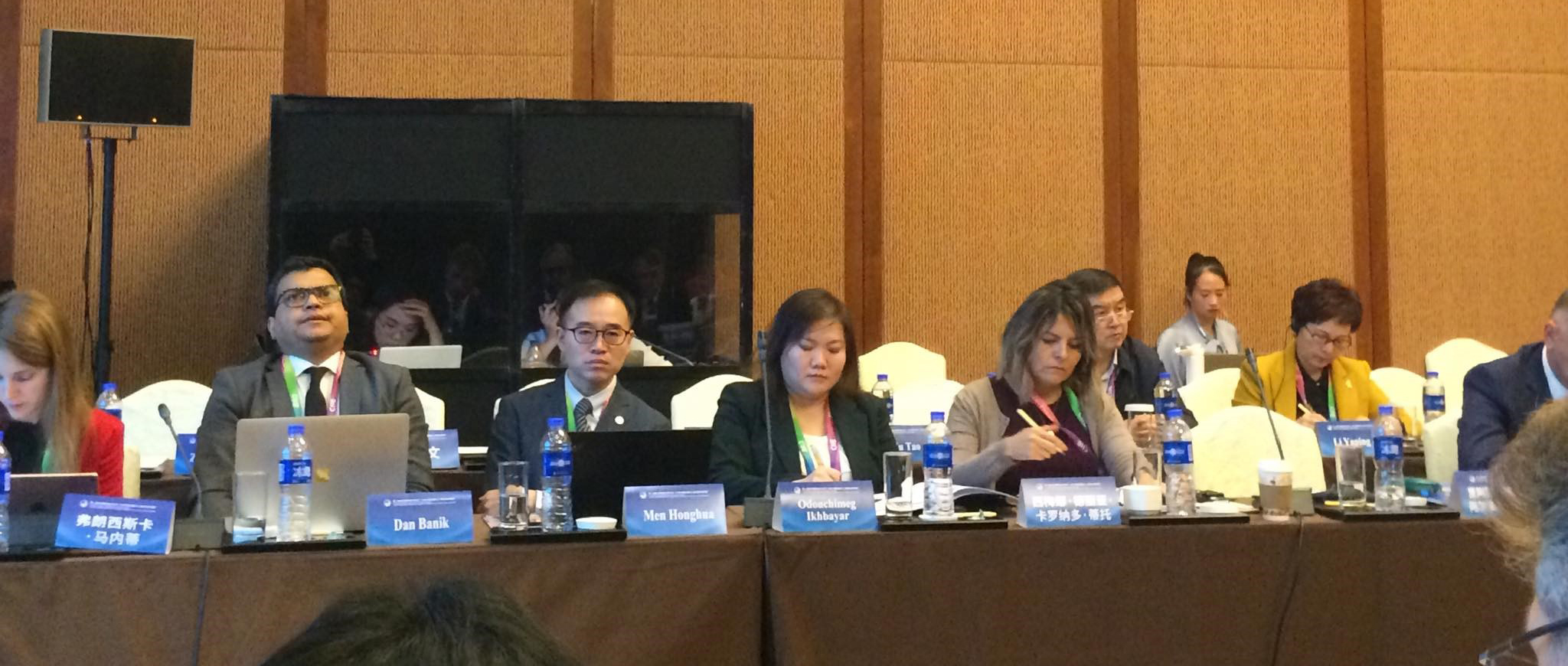
In addition to the 2nd International Economic Forum of Hongqiao, the second China International Secondary Exhibition kicked off at the National Exhibition and Convention Center (Shanghai). President of China Xi Jinping attended the opening ceremony and delivered a keynote speech titled "Openness and Cooperation for a Shared Future", stressing that all countries should have a more open mindset and take more open steps, and work together to build an open world economy through cooperation, with innovation and for mutual benefits.

Notes from Ms.Odonchimeg Ikhbayar’s speech during the Economic Forum
Deputy Director of the Economic Policy and Competitiveness Research Center of Mongolia
Ms. Odonchimeg Ikhbayar’s Speech at the International Forum on “China’s 70 -Year Development and the Construction of the Community with a Shared Future for Mankind”
Topic 7- Ecological Civilization and Sustainable Development
November 6th, 2019
Shanghai, China
First of all, I would like to extend my sincere gratitude to the National Institute for Global Strategy, Chinese Academy of Social Science and all the other organizers for inviting me to today’s forum and the kind welcome.
I would like to start my speech by noting what sustainable development means to us in Mongolia and what is the progress in this regard as a nation. I also want to applaud and stress China’s impressive progress and commitments towards shared future and global sustainability. It was heartwarming to hear about the green development initiatives and actions, modernization with sustainably in mind and the long-term commitments in regard to the green development and ecological civilization. In my opinion, sustainability should be parallel to global development in every aspect possible and every country in the world has a role to play.
As for Mongolia, we are a developing country situated in the heart of Asia with a population of little over 3 million and a vast land. Neighbouring China and Russia, we are mostly known as the second largest landlocked country in the world which experiences extremely cold winters. Economically, Mongolia is highly dependent on its extractives sector and is home to about 10% of world’s known coal reserves estimated at up to 173 billion tonnes, most of which remain untapped according to recent studies.
On the other hand, Mongolia has shown its commitment towards implementing the SDGs by developing a “National Green Development Policy” in 2014 which was ratified by the Parliament as a national strategy followed by action plans and a “Sustainable Development Vision 2030” in year 2016. The former document embodies milestones and goals to be achieved by years 2020 and 2030 aimed at transitioning towards a greener economy. Lead by the Ministry of Environment and Tourism and the National Development Agency, the policy documents often receive recognition and engagements among different stakeholders. However, it is not without challenges and a lack of political commitment. In this regard, evidence-based decision making and forward-looking policy formulations are crucial.
Sound research and measuring of the development progresses are prerequisites for improving and making sustainable development possible. In other words, there is a saying that if you cannot measure, you cannot control and if you cannot control, you cannot improve. This is why the Economic Policy and Competitiveness Research Center (EPCRC) steps in and gets engaged in the discussion. As the preeminent independent and non-profit think tank in Mongolia, the EPCRC has been producing reports and research projects continually. For example, the research team has been partnering with the Swiss-based IMD World Competitiveness Research Center since 2010 in regard to measuring and documenting Mongolia’s economic performance, business efficiency, governance efficiency and infrastructure according to over 330 criteria. The team also measures the national competitiveness at the provincial and the capital city district levels.
The EPCRC is also the Mongolian partner of the Green Economy Coalition also known as the GEC, a leading global movement of civil society aimed at promoting greener and fairer economies. As the GEC partner, the team produced ‘Mongolia’s Green Economy Barometer” in 2018 among other initiatives. Previously, the team also produced reports for the United Nations’ PAGE (Partnership for Action on Green Economy) initiative in Mongolia such as the “Stocktaking of Mongolia’s Green Economy” and the “Green Jobs Mapping Study”.
In regard to the topic of “Ecological Civilization and Sustainable Development”, although Mongolia may not be the first country to come in mind when speaking about shifting towards cleaner energy and no coal policy, the policy level dedication and actions towards sustainable and greener economy show clear indications of commitment and progress. However, as of today, the main source of energy and heating remains coal. Altogether, these create challenges in both rural and urban areas such as air pollution during winter in the capital city and pastureland deterioration in the countryside. Average temperature surge during the past decades exceeded the global target of less than 1.5C already. As noted in the “Mongolia’s Voluntary National Review Report 2019” on the SDGs, Mongolia is one of the first countries to adopt the SDGs which has a sound foundation for ensuring future sustainable development. However, the report also says that despite the early adoption of the Agenda, challenges remain and economic growth needs to be more inclusive, broad-based and cleaner.
With China, Mongolia has a diplomatic relationship since 1949 in addition to the friendly neighbour policy and often seeks collaboration economically and as a neighbour country. Situated in a same continent and time zone, the interdependence on climate change, ecological footprint and sustainability in a broader context should be acknowledged and joint actions and mutual understandings are important in tackling today’s ecological and green development challenges. As mentioned during yesterday’s plenary session, nature and ecology are invaluable assets to China. The same should be true in the case of Mongolia too. China, as a champion in the concept of ecological civilization and a major stakeholder in global sustainable development, there are many good practices and examples that we can learn from and take into serious considerations.
Thank you for your attention.
 English
English


